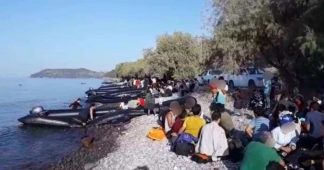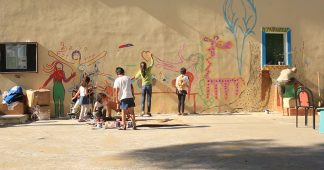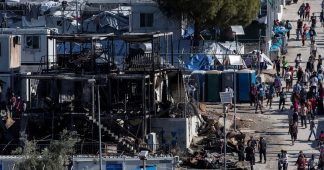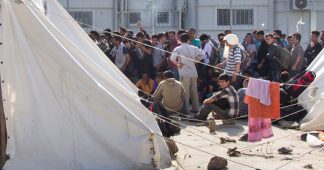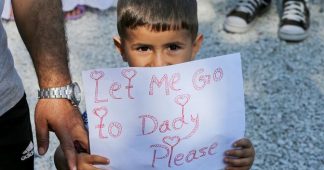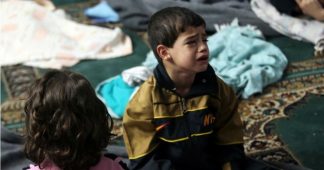More than 12,000 refugees and migrants had to flee Moria camp on Lesvos amid the COVID-19 pandemic, following its destruction by large fires last night. Many of them have now no roof over their heads. Since this morning, desperate refugees – most of them families and children – who attempted to reach the main town in order to ask for assistance and to cover their basic needs have found police prohibiting their passage and are stranded on the road. Until the early afternoon hours, no care was reportedly taken to provide basic assistance to the homeless, whereas more riot police units arrived on the island. This disaster took place a week after the Greek authorities placed the camp in quarantine after the first COVID-19 case was identified in the camp, following which 35 residents of the camp have tested positive. It also occurred hours after the Ministry of Migration and Asylum lauded its efforts to decongest the entire country and to “regain control of migration”.
The tragedy of Moria is neither new nor inevitable. Refugee Support Aegean (RSA) and PRO ASYL have consistently documented the abhorrent, dehumanising and unsafe conditions facing refugees on Lesvos for years, as a direct result of national and EU policies based on containment on the islands in implementation of the toxic EU-Turkey deal. Responsibility-sharing through relocation at EU level has been set up but remains far below actual needs, with only 533 persons relocated to other European countries in 2020.
This year, the dire circumstances are compounded by serious gaps in preparedness to protect refugees’ physical and mental well-being during the COVID-19 pandemic despite strong calls to evacuate the camp and court orders to transfer refugees to suitable living conditions. Refugees who spoke to RSA and PRO ASYL before the destruction of Moria camp described the impossibility of adhering to social distancing in conditions of severe overcrowding, insufficient provision of masks and disinfectants, filthy and insufficient hygiene facilities, and many difficulties in accessing medical assistance in the camp.
RSA and PRO ASYL believe that the persistence on the hotspot model that contains people on the islands, particularly during a pandemic, leads to repeated crises, deprives refugees of any hope and inflames the existing xenophobic climate in local societies. This model is incompatible with the fundamental principle of non-discrimination and the rule of law in a democratic society.
RSA and PRO ASYL urge for an immediate and effective response to the pressing needs of the refugees on Lesvos:
- Prompt and adequate emergency assistance in Greece: Greek authorities must ensure, as a matter of priority, access to adequate shelter, humanitarian and medical assistance, including safeguarding refugees’ physical safety. An appropriate response to the COVID-19 pandemic on the islands also requires robust increase in health care staff and medical equipment, including activation of the EU Civil Protection Mechanism as appropriate. EU institutions must provide support in this direction, considering the effects of the destruction on Lesvos.
- Immediate transfers to suitable accommodation on the mainland: Greek authorities must ensure the immediate transfer of refugees from Lesvos to open reception facilities guaranteeing an adequate standard of living on the mainland, starting with the most vulnerable.
- Immediate expansion of relocation at EU level: Member States and Schengen Associated Countries must strengthen and substantially increase their commitment to existing voluntary relocation schemes and demonstrate their effectively solidarity to Greece. A prompt response to accept the immediate transfer of a large number of refugees from the island of Lesvos to other countries is a starting point for expressing solidarity, considering the deplorable situation on the island.
